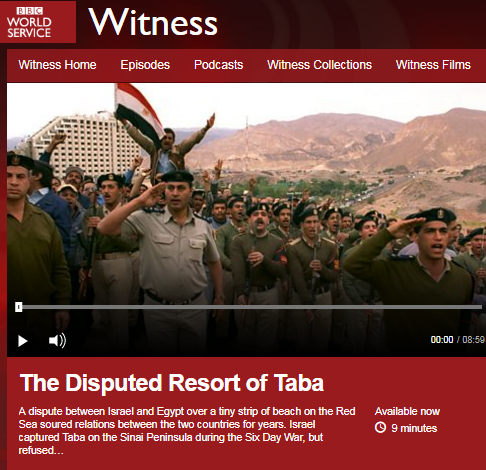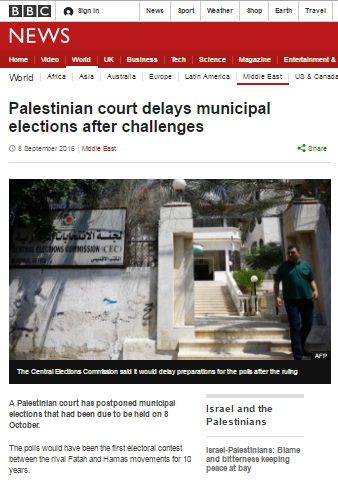The lead story in the April 10th edition of the BBC World Service radio programme ‘Business Matters’ (which ostensibly provides listeners with “global business news”) was, for reasons unknown, the previous day’s general election in Israel.
Listeners first heard (from 1:07 here) some of the more sensible commentary concerning the election aired on BBC stations in recent weeks from the Jerusalem Post’s Knesset correspondent Lahav Harkov.
Referring to Netanyahu, at 5:32 presenter Roger Hearing asked her “why do they keep voting for him?” and – noting the absence of good foreign press reporting on the topic – Harkov responded by citing the fact that the Israeli economy is doing well, that unemployment is down and that international relations are thriving.
Hearing next briefly and superficially discussed aspects of Israel’s economy with one of his two guests before turning to the other – previously introduced as Ralph Silva of the Silva Network but with listeners having been given no indication of what makes a “Broadcasting Analyst Focused on Banking, Technology and Media” qualified to comment on the topic of Israel or the Middle East.
[emphasis in italics in the original, emphasis in bold added]
[7:21] Hearing: “And…err…Ralph: I suppose the thing also, Israel’s slightly got pushed to the back of the news agenda with everything else that’s been happening in the world and even in the Middle East itself but it is still a very…a place that matters a great deal more that its size would indicate in political terms and of course Mr Netanyahu’s quite closely aligned to Donald Trump.”
Silva: “Well he is and I think that there are some concerns there, especially considering the election campaign. We’ve heard quite a bit about developments in the West Bank and pushing that process forward and making it more stable and more secure and with the US government such as it is, it’s basically in support of that so I think that while we haven’t seen a huge amount of developments in relation to the West Bank in the past couple of administrations, now the situation’s a bit different where they do have support especially from the US now. So I am a little bit concerned because there’s been a lot of rhetoric about the West Bank and about how aggressive they’re going to be in the West Bank and of course an aggressive move there could cause some problems. But I think it’s going to be a space to watch and I think we’re going to see a lot of developments in the next elec…in the next 4 to 5 years.”
With that commentary being as clear as mud, listeners would likely have taken away little more than the notion that some party – apparently either Israel or the US – is going to be “aggressive…in the West Bank”.
Hearing: “And of course there’s also Iran. Within the last few days they’ve advanced moves against Iran, making the Revolutionary Guard there an illegal organisation as far as – a terrorist organisation – as far as the US is concerned. And a lot of people see the moves towards Iran including the sanctions that have been put on – the economic sanctions – as being to some extent dictated by Israel or at least influenced by Israel.”
Silva: “Well certainly and if you listen to the press in the United States that’s exactly what is being said. It’s being said that Trump’s administration is supporting them and I think that there’s this new bravado going on because they feel that – the Israelis right now feel like they got a lot of backing right now and clearly they do. Ahm…and there’s been a lot of aggression and what we have to see is sort of a calming down and so I think after this election – during the election we saw that – but as soon as this election is decided I think we’re going to see a calming down of that. At least history has shown us that there is the calming down right after an election so that’s good news.”
Once again it is difficult to imagine how the BBC can claim that such commentary from a guest whose credentials concerning the Middle East were not clarified can possibly be said to contribute to audience understanding of the topic.
What listeners did hear however was the BBC sailing very close to an antisemitic trope by advancing the unsourced and facile notion that American policy on Iran is “dictated by Israel” rather than based on the US’s own considerations.
That, apparently, is the dismal level of ‘analysis’ that the BBC is capable of providing to its worldwide audiences.




